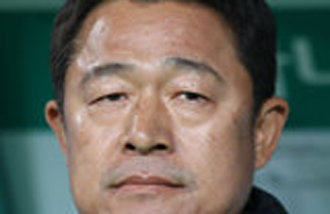A Glance at the Worlds Dictators
Fidel Castro, Cuban president of the Council of State and of the Council of Ministers, has been in power for 47 years. Gabons president Omar Bongo has been in power for 39 years. That makes them numbers one and two, respectively, on the dictator-longevity list. They are followed by Libyan Leader Muammar Gadaffi, who has remained in his post for 37 years, Equatorial Guineas president Teodoro Obiang Nguema Mbasogo and Angolan President Jose Eduardo dos Santos have held their posts for 27 years, and Egyptian President Mubarak has been on top for 25 years. There are even presidents-for-life, such as Turkmenistan`s President Saparmurat Niyazov, who declared himself president-for-life in 1999. Eighty-one year old Zimbabwean President Robert Mugabe has held power for 26 years, and breaking his promise to resign in 2008, announced he intends to stay in power until he turns 100, a virtual president-for-life.
Nation-Founding Dictators
Many former Soviet republics in Central Asia share the same fate of having the same long-ruling president that they had since gaining independence. Examples are Turkmenistan President Niyazov, a former communist who came to power with his countrys independence in 1990, and Belarus first president Alexander Lukashenko, who grabbed power after independence in 1994. In Africa, Eritreas President Afworki Isaias fought for independence for 30 years, and after being elected president, has stayed there since.
By Coup dEtat
Most African dictators grabbed power by overthrowing a government with the help of the military. Libyan President Gadaffi overturned a monarchy in 1969 and has ruled since then. Sudanese President Omar al-Bashir seized power by overthrowing his government when he was a brigadier general. Tunisian President Ben Ali turned against a long-serving president who had appointed him as prime minister in 1987. After succeeding in his coup detat against the government, Pakistani President Pervez Musharraf appointed himself president in 2001.
Hereditary Dictators
Although Azerbaijan, Togo, Syria, and North Korea are not monarchies, the transfers of power from father to son there took place through elections or the recommendation of the ruling party. Ilham Aliyev, president of Azerbaijan, and Faure Gnassingbe, president of Togo, were elected as presidents after their fathers, who were presidents, passed away, but criticism that the elections were rigged remains. In 2000, when former Syrian President Hafez al-Assad, who ruled after succeeding in a military coup in 1970, passed away, his second son, Bashar al-Assad, was selected by the National Assembly to become the next president.
North Korean Chairman Kim Jong Il, the countrys second-generation leader after his father, the late Kim Il Sung, seems to be preparing to pass his post on to a third generation. Libyan President Gadaffi is preparing to bequeath his throne to his second son, Saif al-Islam, while Egyptian President Mubarak is arranging to hand over his presidency to his second son, Gamal.
Misery
Since February of 2003, 180,000 people have been killed and two million have become refugees because of racism and religious persecution in the western part of Sudan near Darfur. Uzbekistani President Islam Karimov is suspected of ordering the massacre of hundreds gathered at the town square of Andijan on May 13 of last year. Zimbabwe, under the leadership of President Mugabe, has an unemployment rate of 80 percent and AIDS infection rate of 20 percent. The average life expectancy there plunged from 62 years in 1998 to 38 last year. Equatorial Guineas President Mbasogo holds about $700 million from oil sales in personal foreign bank accounts, but his people live on a dollar a day.
Ho-Gab Lee gdt@donga.com
Headline News
- Iran blames US sanctions for helicopter crash that killed president
- Pres. Yoon vetoes investigation into death of marine
- “Croatia Holds a Business Forum in Seoul…Looking forward to the development of trade relations”
- Samsung names new chief for semiconductor business
- Seoul City plans to expand welfare benefits







